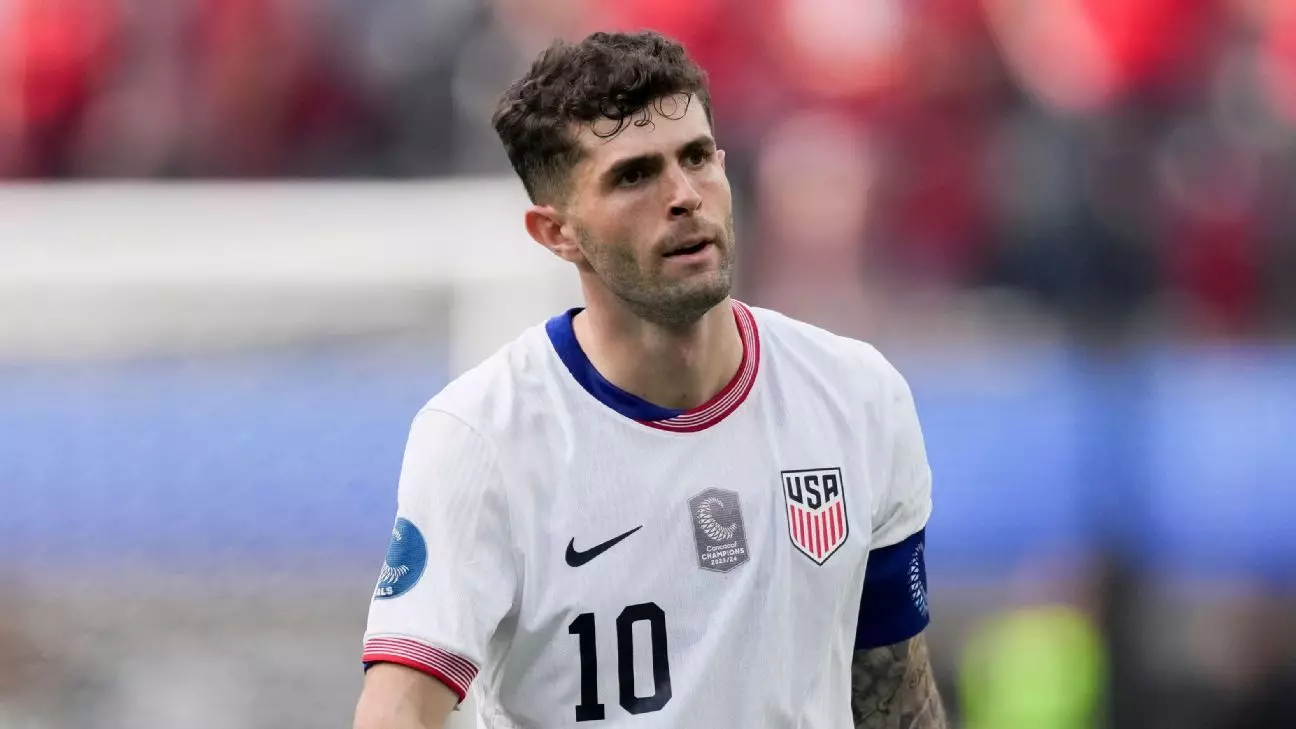Standing Ground: Pulisic’s Choice and Donovan’s Dilemma
Imagine being at the center of a national debate simply because you chose to listen to your body. That’s the predicament Christian Pulisic finds himself in, caught between personal well-being and national expectations. As someone who loves the sport and values players’ mental health, I find this discussion both fascinating and important. The tension between Landon Donovan’s criticism and Pulisic’s decision to rest reflects a broader narrative about what it means to be a modern athlete.
In recent weeks, the soccer community has been buzzing with opinions on whether Pulisic should skip the Gold Cup. Donovan, a respected figure in U.S. soccer, voiced his disappointment during a live broadcast, using Cristiano Ronaldo’s relentless drive as a benchmark. This perspective highlights the sacrifices athletes often make for their country, but it also brings up critical questions about balancing those commitments with personal health. It’s a dilemma that resonates deeply with anyone who understands the rigors of professional sports.
Key Takeaways
- Christian Pulisic’s decision to rest has sparked debate on athlete priorities versus national duties.
- Landon Donovan’s criticism underscores generational differences in sports commitment.
- The conversation highlights growing awareness of mental health and athlete wellness.
Understanding the Athlete’s Mental Landscape
When Donovan and fellow critic Alexi Lalas emphasize the importance of events like the Gold Cup for team cohesion and morale, they have a point. These tournaments are crucial for building chemistry ahead of larger competitions such as the World Cup. However, it’s important to consider the immense pressure these expectations place on athletes like Pulisic. Having just completed a grueling season in Europe, Pulisic may view rest as essential not just for immediate performance but for his long-term career.
Pulisic’s father, Mark Pulisic, reminded Donovan of his own break in 2012 due to similar pressures, pointing out the significance of mental health in sports. It’s quite revealing when someone like Donovan overlooks factors that once led him to take time off. Rest isn’t merely an indulgence; it’s fundamental for maintaining peak performance levels. Balancing commitment to the national team with self-care is crucial, ensuring athletes remain both mentally and physically fit.
Reassessing Professional Commitments
The ongoing debate brings to light an evolution in how athletes perceive their careers. Gone are the days when athletes were expected to continuously push themselves without regard for their well-being. With increased awareness around mental health, today’s sports figures understand that overexertion can lead to burnout and injuries. As we look forward to the World Cup next year, ensuring players like Pulisic are rested and ready is essential for success, even if it means missing some tournaments along the way.
Pulisic and his peers are more than just components of a larger machine; they are individuals balancing elite performance demands with their personal lives. A proactive approach to their wellness can lead to stronger performances in the future. While significant, the Gold Cup is just one piece of the puzzle, and keeping athletes at their best is critical for U.S. soccer’s long-term success.
Generational Perspectives in Sports Commentary
The friction between Donovan’s stance and Pulisic’s choice reveals an intergenerational conversation about professional athleticism today. Donovan, representing traditional views, feels disillusioned by what he sees as a lack of commitment among younger players. On the other hand, athletes like Pulisic advocate for a more balanced approach that respects both modern sports demands and personal boundaries.
This divide is complex yet enlightening. Older generations often equate success with unwavering dedication, while younger players highlight the need for pause and recovery. This shift is not only remarkable but necessary; it emphasizes that taking care of one’s body and mind enhances rather than detracts from their ability to contribute effectively to their teams.
As discussions continue, it’s vital to remember that individual choices in sports often mirror broader cultural shifts regarding athlete identity, health, and societal expectations. The true challenge lies in creating an environment that honors both competitive spirit and human needs for rest and rejuvenation.
Final Thoughts
This debate over Pulisic’s decision offers a valuable opportunity to reflect on athlete welfare and national pride’s evolving dynamics. It prompts us all—fans, commentators, and players alike—to reconsider how we define dedication within sports contexts. After all, longevity in any career requires balance, understanding that sometimes stepping back is just as important as pushing forward. As we cheer on our teams nationally or internationally, let’s also champion these athletes’ right to manage their health effectively.
Pulisic
Donovan
mental health
athlete wellbeing
sports culture


Leave a Reply